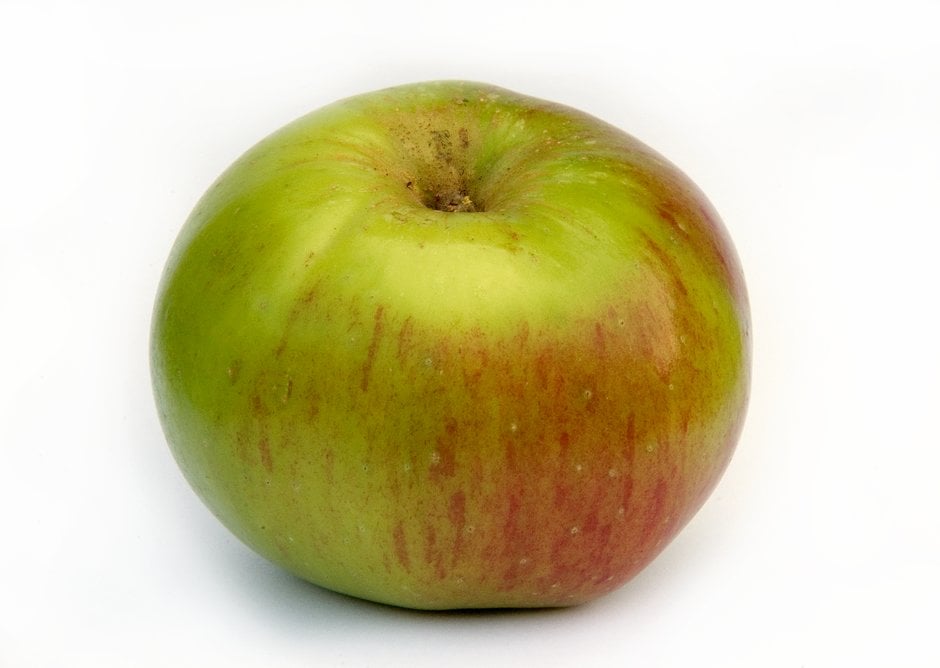Malus domestica 'Bramley's Seedling' (C)

apple 'Bramley's Seedling'
A culinary apple that is vigorous and partially tip bearing. It can grow to 2.5-8m in height and width, depending on the rootstock. Pale pink flowers are followed by fruit that can be used from November to February
Synonyms
Malus domestica 'Bramley's Original'Malus 'Bramleys Seedling'
see moreMalus domestica 'Bramley'
Size
Ultimate height
4–8 metresTime to ultimate height
5–10 yearsUltimate spread
4–8 metresGrowing conditions
Moisture
Moist but well–drained, Well–drainedpH
NeutralColour & scent
| Stem | Flower | Foliage | Fruit | |
| Spring | Pink | Green | ||
|---|---|---|---|---|
| Summer | Green | |||
| Autumn | Green | Green Red | ||
| Winter |
Position
- Full sun
Aspect
South–facing or East–facing or North–facing or West–facing
Exposure
Sheltered Hardiness
H6Botanical details
- Family
- Rosaceae
- Native to GB / Ireland
- No
- Foliage
- Deciduous
- Habit
- Bushy
- Genus
Malus are small to medium-sized deciduous trees with showy flowers in spring and ornamental or edible fruit in autumn; some have good autumn foliage colour
- Name status
Accepted
- Horticultural Group
- Apples suitable for culinary use have a tart flavour and are best cooked or made into a puree
How to grow
Cultivation
Best suited to growing as a bush or spindlebush on dwarfing or semi dwarfing rootstock. A triploid so not an effective pollinator; should be grown with 2 other cultivars. Keep a clear area around the trunk of at least 60cm radius. Thin fruit as required. Visit our Grow Your Own guide to apples
Propagation
Propagate by chip budding or grafting onto a clonal rootstock. The rootstock used will largely determine the size of the tree
Suggested planting locations and garden types
- Cottage and informal garden
- Wildlife gardens
Pruning
Regular pruning required; partially tip bearing apple pruning
Pests
May be susceptible to aphids, including woolly aphid and rosy apple aphid, fruit tree red spider mite, codling moth and other caterpillars
Diseases
May be susceptible to apple canker, apple scab, blossom wilt, brown rot, fireblight, honey fungus and powdery mildews
Get involved
The RHS is the UK’s gardening charity, helping people and plants to grow - nurturing a healthier, happier world, one person and one plant at a time.
